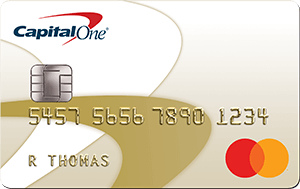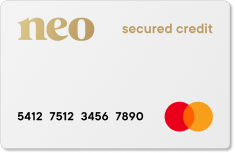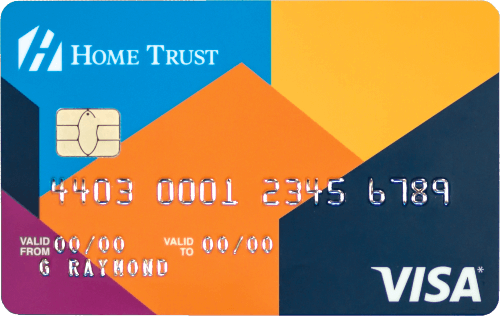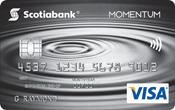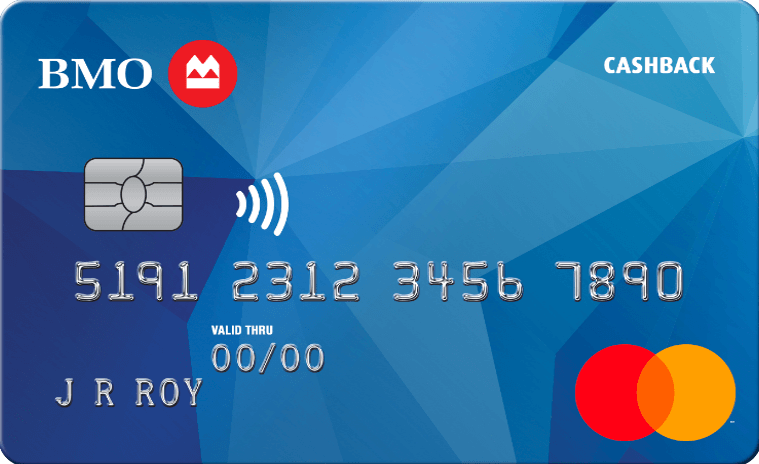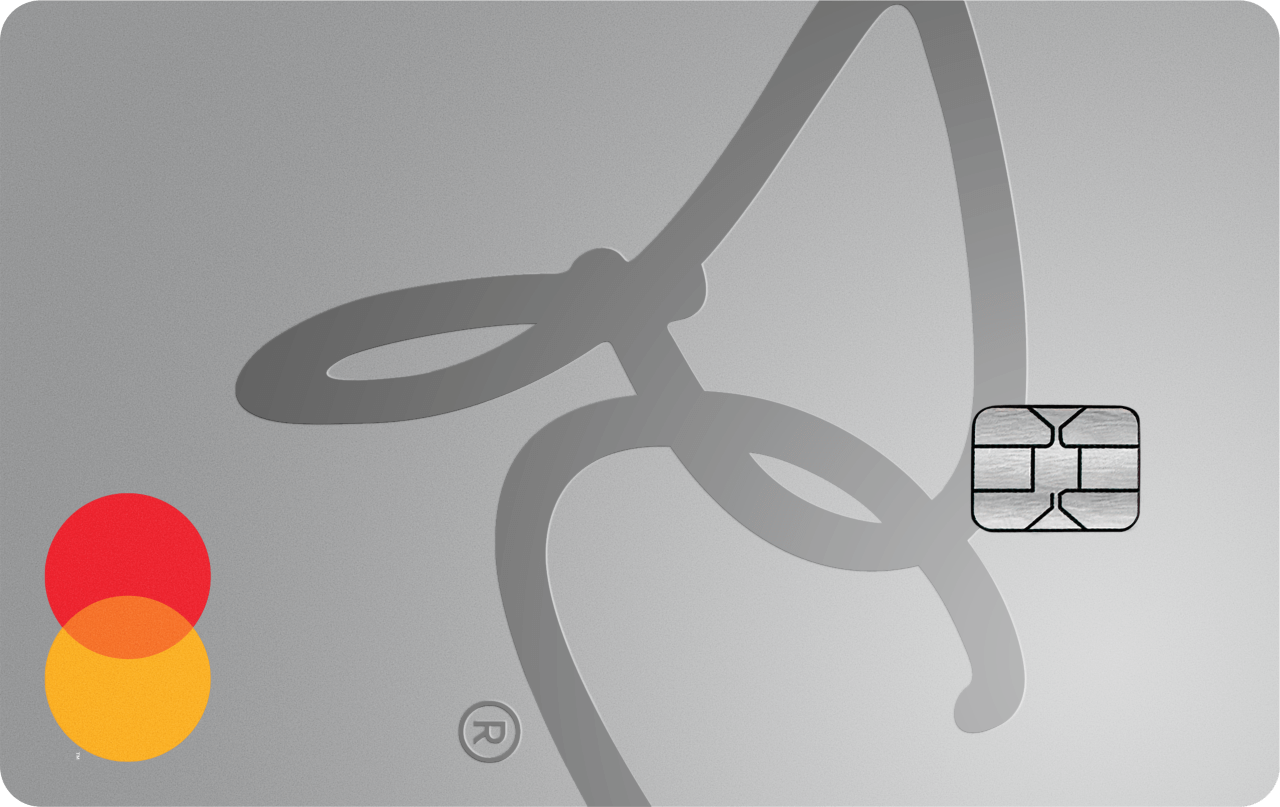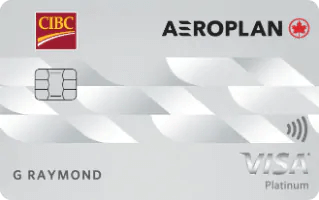Featured credit cards

Home Trust Secured Visa Card

Secured Neo Mastercard

Scotiabank Momentum No-Fee VISA Card
MoneySense is an award-winning magazine, helping Canadians navigate money matters since 1999. Our editorial team of trained journalists works closely with leading personal finance experts in Canada. To help you find the best financial products, we compare the offerings from over 12 major institutions, including banks, credit unions and card issuers. Learn more about our advertising and trusted partners.
Best credit cards for bad credit in Canada
Maybe you’re one of the many Canadians who missed a debt payment in the last year. Or maybe you’re a newcomer to Canada, or you’re a young person who hasn’t established a credit history yet. Whatever the reason for your low or non-existent credit score, you’ll need to show lenders that you can handle credit responsibly. The credit cards on this list can help you do that, and they are accessible to most applicants, regardless of their credit history.
| Credit card | Annual fee | Recommended income | Recommended credit score | Apply now (featured cards only) |
|---|---|---|---|---|
| Capital One Low Rate Guaranteed Mastercard | $0 | None specified | None specified | Not available |
| Secured Neo Mastercard | $60 | None specified | 690 or higher | Apply now |
| Home Trust Secured Visa | $0 | None specified | 300 or higher | Apply now |
| Scotiabank Momentum No-Fee Visa | $0 | $12,000 per year | 660 or higher | Apply now |
| BMO CashBack Mastercard | $0 | $15,000 per year | None specified | Apply now |
| PC Mastercard | $0 | None specified | 560 or higher | Apply now |
| CIBC Aeroplan Visa Card for Students | $0 | None specified | None specified | Not available |
Best secured credit cards for bad credit in Canada
A secured credit card is a good option for Canadians who don’t qualify for traditional unsecured credit cards because of bad credit or a lack of credit history. Secured credit cards require that you pay a security deposit upfront, but if you have that, your likelihood of approval is very high. Plus, using a secured card responsibly can help build or boost your credit over time. Here are the top secured cards in Canada, as chosen by MoneySense editors.
Gold: Capital One Guaranteed Secured Mastercard
At a glance: You are guaranteed to be approved for the Capital One Guaranteed Secured Mastercard, as long as you’re of the age of majority in your province, you don’t have an existing Capital One account (or have applied for one in the past 30 days), and you haven’t had a Capital One account in bad standing in the past year. This card offers an effective way to build your credit—even if you have a low credit score—and even offers a few extras.
Capital One Guaranteed Secured Mastercard
Annual fee: $0
Rewards: None
Welcome offer: None at this time
Card details
| Interest rates | 21.9% to 29.9% on purchases, cash advances and balance transfers |
| Income required | None specified |
| Credit score | None specified |
Pros
- You’re guaranteed approval as long as you meet basic eligibility criteria.
- Comes with some travel benefits, including common carrier travel accident coverage and car rental collision/loss damage waiver.
Cons
- Comes with some travel insurance, but you’ll likely need to buy supplemental protection.
- There’s a $59 annual fee and the regular interest rate is 21.9%, so this card is not ideal if you’re carrying a balance.
- This card doesn’t offer the ability to earn rewards or cash back.
Silver: Secured Neo Mastercard
At a glance: You can start using the Secured Neo Mastercard with a deposit of as little as $50, and it has a cash back program that can get you an average of 5% cash back for purchases at partner businesses. You can also subscribe to optional “Bundles” that give you the ability to make your card more suited to your spending habits, with boosted rewards and various perks like insurance.
Secured Neo Mastercard
Annual fee: $60
Rewards: A minimum of 0.5% cash back and an average of 5% cash back on purchases at partners
Welcome offer: Get $25 when you sign up.
Card details
| Interest rates | 19.99% to 29.99% on purchases (19.99% to 24.99% for Quebec residents) and 22.99% to 31.99% on cash advances (22.99% to 25.99% for Quebec residents) |
| Income required | None |
| Credit score | 690 or higher |
Pros
- Tailor the card to your needs using customizable Bundles.
- Earn unlimited cash back on your purchases.
- This is a guaranteed approval credit card so as long as you’re a Canadian citizen or permanent resident of the age of majority in your home province or territory, and you can pay a small security deposit, you’ll be approved.
Cons
- You’ll have to shop with partners to get the most cash back. Rewards may be limited for those who support independent shops and those in rural areas.
- There are almost no extras with this card unless you subscribe to a Bundle.
Bronze: Home Trust Secured Visa
At a glance: The Home Trust Secured Visa offers more flexibility than most secured credit cards by offering you two options: an interest rate of 19.99% with no annual fee, or a lower interest rate of 14.90% with a $59 annual fee. You also have a say on your credit limit: Deposit $500 to $10,000 and your chosen amount becomes your limit. Home Trust reports payments to the credit bureaus, so responsible use of this card will boost your score. Home Trust is a member institution of the Canada Deposit Insurance Corporation, so your deposit is protected.
Home Trust Secured Visa
Annual fee: $0
Rewards: Does not offer rewards.
Welcome offer: None at this time.
Card details
| Interest rates | 19.99% on purchases and 19.99% on cash advances |
| Income required | None specified |
| Credit score | 300 or higher |
Pros
- Cardholders can choose between an annual fee of $59 and a 14.90% interest rate or no annual fee and a 19.99% interest rate.
- If you choose the lower interest rate, you can pay the $59 annual fee in a lump sum or installments.
Cons
- There’s a $12 additional fee for accounts that are inactive for a year.
- This card doesn’t have any extras or perks.
- Not available to residents of Quebec.
Best credit cards for newcomers with bad or limited credit
If you’re new to Canada, you might not have a Canadian credit score, which can make it hard to secure a loan, mortgage or other form of credit. Without a credit score, it can even be hard to rent an apartment or obtain employment. One of the fastest ways to start building your Canadian credit score is to use a credit card geared toward newcomers. Sometimes, banks will wave the standard eligibility requirements (such as income and credit score requirements)‚ if they know you’re a newcomer looking for your first card.
Scotia Momentum No-Fee Visa Card
At a glance: The Scotia Momentum No-Fee Visa is a no-fee card that earns cash back rewards and comes with a beefy welcome bonus to boot.
Scotia Momentum No-Fee Visa Card
Annual fee: $0
- 1% cash back at gas stations, grocery stores, drug stores and recurring bills
- 0.5% on everything else
Welcome offer: Earn 5% cash back for the first 3 months (up to $2,000 in total purchases). Plus, pay 0% interest on balance transfers for the first 6 months. Offer ends June 30, 2025.
Card details
| Interest rates | 19.99% on purchases, 22.99% on cash advances, 22.99% on balance transfers |
| Income required | $12,000 per year |
| Credit score | 725 or higher |
Pros
- Transfer balances from other cards and pay no interest for six months.
- Earn 1% cash back on purchases at gas stations, grocery stores, drug stores and recurring payments, and 0.5% cash back on everything else.
- Supplementary cards are free, so you can have family members or trusted friends on your account.
Cons
- This card doesn’t offer any included insurance protections.
- After six months of benefitting from 0% interest on balance transfers, the interest reverts to 22.99%.
BMO CashBack Mastercard
The BMO CashBack Mastercard is a no-fee card ideal for newcomers to Canada. With up to 5% cash back in your first three months, and 3% cash back on groceries after that (the highest for a no-fee card), it offers solid rewards for essential purchases. Even better, you can use your rewards whenever you want. Plus, the BMO NewStart Program lets you open the card without a credit check and access bonuses on other BMO products.
BMO CashBack Mastercard
Annual fee: $0
- 3% cash back on groceries (on the first $500 per month)
- 1% on recurring bills
- 0.5% on everything else
Welcome offer: Earn up to 5% cash back during your first three months.
Card details
| Interest rates | 21.99% on purchases, 23.99% on cash advances, 23.99% on balance transfers |
| Income required | n/a |
| Credit score | None specified |
Pros
- Get this card without a credit check, along with cash back bonuses on other products, like a chequing account, investments and even a mortgage.
- Simple reward structure and, unlike with some other cash back cards, you can redeem rewards any time for as little as $1.
- This card is accessible to most.
Cons
- Groceries purchased at Costco and independent businesses, like bakeries and butchers, are not eligible for 3% cash back, only the base rate.
- Only 0.5% cash back on most purchases, which is lower than some credit cards.
Best credit cards for students with bad or limited credit
It’s possible you don’t have a credit score even if you’ve lived in Canada you’re entire life and already have a bank account. In fact, this is common for students and young Canadians who haven’t held a credit card or other form of credit. Good news: there are credit cards for you, too! Just as banks will sometimes wave eligibility requirements for newcomers to Canada, many institutions have special student offers or more flexible requirements for students who are just getting started with credit cards.
PC Mastercard
At a glance: Drugstores and grocery stores are where many students tend to spend the most. That makes the PC Mastercard a strong pick for those who shop frequently at participating stores. With earn rates ranging from 10 to 30 points per $1, depending on the store, you can accumulate rewards quickly.
PC Mastercard
Annual fee: $0
- 25 points per $1 spent at Shoppers Drug Mart
- At least 30 points per litre at Esso and Mobil gas stations
- 10 points per $1 on everything else
Card details
| Interest rates | 21.99% on purchases, 22.97% on cash advances and % on balance transfers |
| Income required | None specified |
| Credit score | 560 or higher |
| Point value | 1 PC Optimum point is worth $0.001 (redeem 10,000 points for $10) |
Pros
- Earn 25 points for every $1 spent at Shoppers Drug Mart and 30 points per litre of gas at Esso and Mobil, translating to a return of 2.5% and 3%, respectively. These returns are generous for a student card.
- Redemption is easy. You have the flexibility to use your PC Optimum points at various Loblaw-affiliated stores, which could significantly reducing your day-to-day expenses. The extensive redemption network covers Canada’s largest pharmacy and grocery chain, along with Joe Fresh, spanning over 4,500 locations nationwide.
- There’s no cap on how many PC Optimum points you can earn.
Cons
- Not as versatile as cash back rewards, as redemptions are restricted to specific retailers.
- You must redeem a minimum of $10 at a time.
- A relatively high standard purchase interest rate of 21.99%.
CIBC Aeroplan Visa Card for Students
At a glance: The CIBC Aeroplan Visa Card is tailored to the needs of students, especially those who can take advantage of travel rewards. This student-friendly card has no annual fee, and it provides a free SPC+ membership that lets you enjoy savings of up to 30% across 450-plus brands.
CIBC Aeroplan Visa Card for Students
Annual fee: $0
- 1 point per $1 spent on gas and EV charging, groceries and Air Canada purchases
- 0.67 points per $1 on everything else
Welcome offer: earn 10,000 Aeroplan points when you make your first purchase ($200 value)
Card details
| Interest rates | 20.99% on purchases and 22.99% on cash advances (21.99% in Quebec) |
| Income required | None specified |
| Credit score | None specified |
| Point value | . |
Pros
- Earn Aeroplan points on your everyday purchases and enjoy flexible redemption options, including flights and merchandise.
- The earn rate may seem low compared to other cards, but Aeroplan points are often worth more as long as you redeem them for travel.
- Redeem your points for any Air Canada seat without worrying about blackout dates. Plus, you can pay for flights with a mix of points and cash.
- The card comes with some travel insurance, like collision and loss damage insurance for car rentals and common carrier insurance. You also get purchase security and extended protection insurance.
- Enjoy a free SPC+ membership that could save you money at select merchants.
Cons
- Unlike with other Aeroplan cards, you won’t earn Status Qualifying Miles on your everyday purchases.
- If you don’t travel frequently via Air Canada or one of its partner airlines, this card would have limited value.
Frequently asked questions
Your credit score is a three-digit number, generally between 300 and 900, which shows how good you are at managing credit and loans. What is considered a “good” and “bad” score may differ from institution to institution, but generally, a “poor” credit score is below 560. If your credit score is below 660, it may be hard to find a creditor and, if you do, the terms may not be optimal. Scores between 660 and 759 are considered “good” or “very good.” A credit score of 760 or above is considered “excellent.”
As with any other type of credit card, it’s important to compare fees, interest rates and repayment terms. Remember that each application for a credit card you submit affects your score, so be strategic. Make a list, apply for your top card and wait for a response before trying the next one.
Canada has two credit bureaus that monitor credit history: Equifax and TransUnion. You can contact them to request your credit score. You can also seek your credit score and credit report from third parties that use Equifax or TransUnion data, such as Borrowell, ClearScore and Credit Karma. (Read their terms and conditions before you sign up.) Checking your credit score won’t hurt your score.
How are credit scores calculated?
These variables affect your credit score.
- Payment history: Whether you pay your bills in full and on time, any missed payments and how long you owed money.
- Credit history: The longer you’ve managed credit and the longer the accounts have remained in good standing, the better your score. This is why you should hang on to unused credit card accounts even if you don’t use them.
- Debt load: The total amount of money you owe to creditors, including credit cards, loans and mortgages.
- Credit utilization ratio: This refers to the amount of debt you carry compared to the amount of credit you have. Keeping the ratio below a certain threshold can help boost your score.
- Types of credit you carry: Your score improves when you can demonstrate that you can manage debt with a number of different types of credit—a mortgage, a car loan, and credit cards, for example.
- Loan applications: Each time you apply for credit, your score takes a small, temporary hit—so avoid applying for multiple sources of credit in a short period of time.
- Credit history: This shows lenders you can repay your debt, so apply for a card early and use it responsibly.
What is a secured credit card?
A poor credit history will limit the cards available to you, but you still have options. For starters, when using a credit card to rebuild your credit score, you’ll need to choose between a secured card and an unsecured card.
A secured credit card is offered on the condition that you “secure” it with collateral, usually in the form of a refundable cash deposit that can be claimed by the lender if you default on your payments. These cards are marketed directly to those with bad credit, so they have an easier approval process, and the cards themselves come with no frills. Lenders report your activity to Canada’s two main credit bureaus, TransUnion and Equifax. Over time, as you continue to repay your debts responsibly, you’ll build a credit history. With a prepaid card, the credit limit is directly based on the holder’s deposit.
Unsecured cards, on the other hand, aren’t generally available to people with bad credit scores but are occasionally offered to those with “fair” scores—usually in the range of 600 to 650. As the name suggests, an unsecured card doesn’t require a deposit. Plus, unlike secured cards, many unsecured cards offer rewards (such as points or cash back). That said, these cards often have tougher approval requirements than unsecured cards. And as with all kinds of contracts, it’s always a good idea to read the fine print when applying for a new credit card.
What is a guaranteed approval credit card?
A guaranteed credit card is a card that you’ll be approved for, as long as you meet certain minimal requirements. Whereas most credit cards require a good to excellent credit score or a high minimum annual income, guaranteed credit cards are designed for those with no credit or poor credit. The criteria for guaranteed credit cards are far simpler, and usually include:
- being a citizen or permanent resident of Canada
- being of the age of majority in your home province or territory
- not being in bankruptcy
- being able to pay a small security deposit
Guaranteed credit cards don’t usually come with any perks or extras because they’re tailored for those working towards improving their credit score.
Establishing your credit score as a newcomer to Canada
Unfortunately, if you’re a newcomer to Canada, your credit score from your home country won’t follow you here. As a result, your credit card choices may be more limited, but this also means you can start building a new score from scratch—which, for some, can be a positive thing. One approach is to get started with a secured card, with the goal of graduating to a better, unsecured card once your credit score has improved.
Another way to build your Canadian credit score might be through a program for newcomers at a bank. For example, Scotiabank’s StartRight program is designed specifically for newcomers to Canada, providing access to credit, a savings account, no-fee international money transfers and help from the bank’s financial advisors. Similarly, BMO’s NewStart program can issue you a credit card, a bank account, a safety deposit box and even mortgage options.
How we determine the best cards
The MoneySense editorial team selects the best credit cards by assessing the value they provide to Canadians across various categories. Our best credit cards for people with bad credit ranking is based on an extensive list of card details and features, including approval likelihood, annual fees, interest rates, welcome offers and annual income requirements. We have also considered the pros and cons of each card to help you determine which ones best suit your financial needs. Our rankings are an unbiased source of information for Canadians. The addition of links from affiliate partners has no bearing on the results. Read more about how MoneySense makes money.
